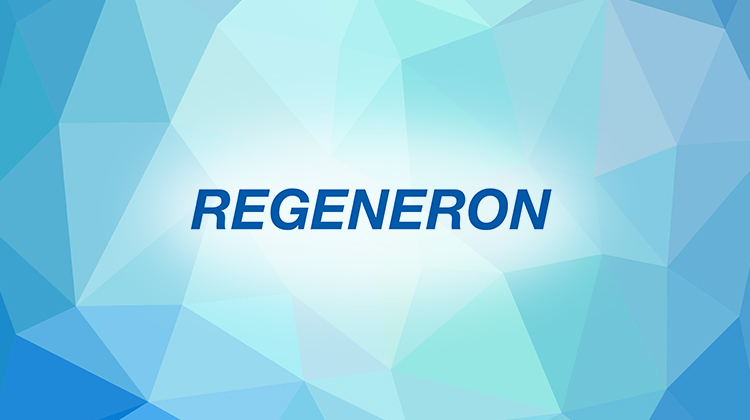Regeneron Looks Ahead to ANG2 Antibody After Anti-PDGFR-β Disappoints

Now that Regeneron has announced that its rinucumab-Eylea (aflibercept) combination treatment for wet age-related macular degeneration (AMD) failed to meet the primary endpoint of a Phase II trial, the company may be focusing its efforts in combination therapy for wet AMD on the anti-angiopoietin 2 (ANG) antibody nesvacumab.
Not only have analysts said that trials of nesvacumab are much anticipated, but Regeneron chief scientific officer George D. Yancopoulos, MD, PhD, said as much in the press release announcing the CAPELLA trial results of rinucumab-Eylea. “We are committed to continuing to innovate for patients with serious vision-threatening diseases, and look forward to the results of our ongoing combination studies of aflibercept and nesvacumab, for which the preclinical data is more supportive,” Dr. Yancopoulos said.
Rinucumab is an anti-platelet-derived growth factor receptor-β (anti-PDGFR-β) antibody that has been co-formulated with Eylea for the Phase II CAPELLA trial. In the press release, Regeneron said more detailed results of CAPELLA would be presented “at a future medical congress.” The American Academy of Ophthalmology meeting starts next week in Chicago, but a Regeneron spokesperson declined to provide any further details beyond what the press release stated.
The primary study endpoint the rinucumab-Eylea combination failed to meet was an improvement in best-corrected visual acuity (BCVA) when compared with Eylea monotherapy at 12 weeks. The combination treatment showed a 5.8-letter improvement in BCVA versus a 7.5-letter improvement with Eylea alone.
What’s more, rinucumab-Eylea showed no benefit over Eylea alone on reduction in retinal thickness or resolution of subretinal hyper-reflective material on imaging. The combination groups also had more ocular adverse events, such as an increase in conjunctivial hemorrhage and ocular irritation and pain, at 12 weeks: 23.5% and 20% for the two combination groups versus 16% for Eylea alone.
CAPELLA has enrolled 505 patients with wet AMD randomized to three groups: Eylea monotherapy 2 mg, Eylea 2 mg/rinucumab 1 mg, or Eylea 2 mg/rinucumab 3 mg. Subjects received intravitreal injections every four weeks, and the co-formulation was administered as a single intravitreal injection. At week 12, two of the three treatment groups were re-randomized, resulting in five total dosing groups in the second phase of the study. Data will be evaluated at 28 weeks and again at 52 weeks, when the study is completed. The estimated study completion date is next June.
For its ANG2 program, Regeneron entered into a cooperative agreement with Bayer earlier this year to develop combination therapy of nesvacumab and Eylea, the subject of two separate Phase II trials in wet AMD and diabetic macular edema. Regeneron received $50 million up front and is sharing global development costs with Bayer.
Bayer will have exclusive ex-US commercialization rights to the combination product and will share potential profits equally with Regeneron, while Regeneron retains exclusive US commercialization rights and will retain 100% of profits from US sales. Regeneron is also eligible to receive up to $80 million in potential payments related to development and regulatory milestones.
The nesvacumab trials are due for completion in the fourth quarter of 2017 with final data collection set for next April for the DME trial and June 2017 for the wet AMD trial.
Meanwhile, Ophthotech Corp., which has its own anti-PDGF agent, Fovista (pegpleranib), in Phase III trials in combination with Eylea and Avastin and Lucentis (bevacizumab and ranibizumab, Genentech), may be bearing the fallout of the CAPELLA trial more so than Regeneron. While Regeneron’s stock price has leveled off since news of the CAPELLA trial came out, Ophthotech stock plunged 16%, from $54.12 to around $45 Monday. (Regeneron’s stock price has held fairly steady over the past month, trading at around $402.48 on Monday.)
Phase IIb results have already shown Fovista-Lucentis to be superior in improving BCVA in wet AMD to Lucentis alone, and Michael Brush of MarketWatch said Ophthotech is one of “the more important companies to watch because their positive news could impact the whole sector.”
Ophthotech chairman and CEO David Guyer, MD, reported at OIS@AAO last year that the company expected results from its Fovista trials in the fourth quarter of this year. In June, Ophthotech completed recruitment of its Phase III trial of Fovista in combination with Eylea or Avastin.
